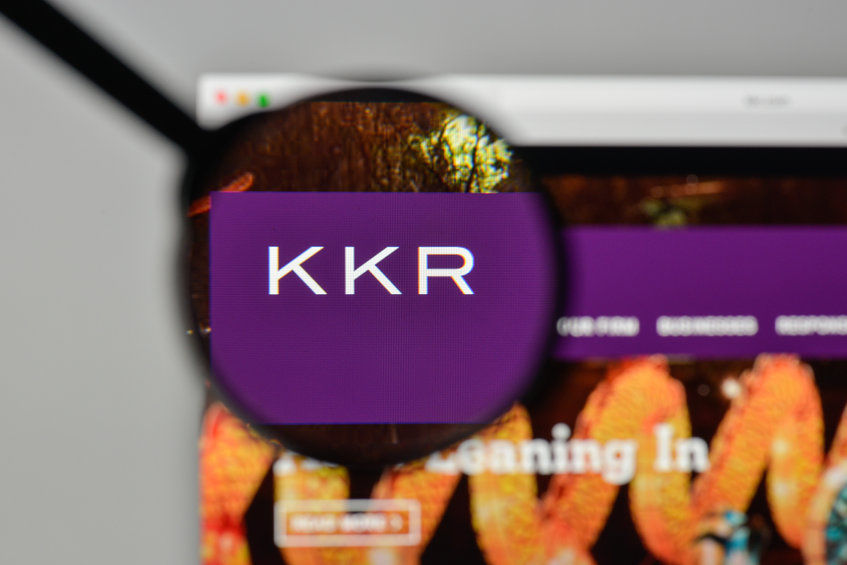Apollo Global Management (APO) stock has done well this year, as the company’s role in the private credit and insurance industries has improved. It has risen by 50%, beating the S&P 500 and Nasdaq 100 indices, which have risen by less than 25%.
Apollo’s gains continued recently after the management inked a $25 billion deal with Citigroup, one of the top American banks. The deal will see the two companies finance various debt opportunities, mostly in the United States.
Apollo also aims to double its assets in the next few years, a move that will see it manage over $1.3 trillion, joining Blackstone, the biggest alternative asset manager in the industry.
Apollo’s stock has been spectacular, rising by over 533% in the last five years. As such, a $1,000 investment in the company a decade ago would now be worth over $6,300, excluding dividends.
KKR’s is a big name in P/E and credit
KKR is often an overlooked name in the private equity industry yet it is one of the best performers. Its stock has surged by over 556% in the last decade and 63% this year.
Started by Henry Kravis, Jeremy Kohlberg, and George Roberts in 1976, it has become the fourth-biggest player in the industry after Blackstone, Brookfield, and Apollo with over $601 billion in assets. It is the second-biggest company in market cap, with its $118 billion valuation.
It has done that with minimal acquisitions. Apollo’s current form happened with its $11 billion Athene acquisition, while Blackstone has bought several companies for its private equity and real estate businesses.
KKR operates in five key industries like private equity, real assets, credit and liquid strategies, capital markets, and principal activities. It then makes money through fees, incentives, and carried interest.
KKR’s business is doing well
The most recent financial results show that KKR’s revenues rose to $4.17 billion in the second quarter, an increase from the $3.62 billion it made in the same period last year.
Most of this revenue came from its insurance business, which had over $2.6 billion in revenues followed by its asset management and strategic holdings. Its revenue in the year’s first half rose to $13.8 billion, up from $6.7 billion last year.
While its net income dropped to $667 million in the second quarter, its strong performance in the first quarter saw its first half profit rise to $1.35 billion.
KKR’s performance happened after the company continued its strong fundraising. It raised $32 billion in assets in the second half and over $108 billion in the last twelve months. These fundraisings are important because most of its revenue comes from its asset management fees.
KKR finished the last quarter with over $108 billion in dry powder, or funds it has raised, but has not invested.
Read more: Apollo Global stock: private credit giant forms a risky pattern
KKR is more overvalued than Apollo
While KKR has done better than Apollo, there are reasons to believe that the latter will catch up with time.
First, Apollo is a relatively cheaper company, trading with a price-to-earnings ratio of 15, much lower than KKR’s 31. Its forward 1-year P/E ratio of 19 is also lower than KKR’s 28. Therefore, there are chances that, with time, Apollo will close the gap, because of its strong market share in the credit industry.
Second, Apollo is expected to have faster growth than KKR in the longer term. It has a forward revenue estimate of 16%, higher than KKR’s 11.7%. Its forward EBITDA growth of 54 is higher than KKR’s 14%.
Third, Apollo has a higher dividend yield than KKR. It has a forward yield of 1.34% compared to Apollo’s 0.53%.
Additionally, Apollo has better profit metrics than KKR. Its TTM revenue per share is $44 compared to KKR’s $30.2, while its net income of $5.7 billion is higher than Apollo’s $3.8 billion.
Read more: Ares Management stock has soared, but there’s 1 key risk
Apollo vs KKR: better buy?
Apollo and KKR are some of the best private equity and private credit companies in the industry. While their assets have surged in the past few years, they have more runway for growth in the long term.
KKR’s stock has outperformed Apollo in the last decade. Over time, I suspect that APO will fill the valuation gap. Therefore, there is a possibility that Apollo will do better over time.
The risk, however, is that the two companies have become overbought, pointing to a short-term reversal. Apollo’s Relative Strength Index (RSI) metric has risen to 80 on the daily chart. KKR’s metric has moved to 70.
The next key catalysts for the two companies will be when they publish their next financial results. KKR will go first on November 1 followed by Apollo on November 5. In most cases, stocks tend to have some significant moves after earnings.
The post Apollo Global vs KKR: Which is the better private equity stock? appeared first on Invezz

